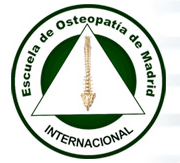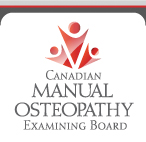Acne affects more than 80 percent of American teenagers, between the age of 13 and 18, and 20 percent of adults. While only 20 percent of acne sufferers will retain permanent scars, all of them are forced to contend with the psychological problems associated with the disease; loss of self esteem, negative body image, and depression.
There are thousands of treatment options for acne, ranging from specially formulated soaps to chemical injections. Naturopathic medicine, which uses the body’s healing process in conjunction with naturally occurring substances, provides another option for acne treatment. Testimonials and controlled studies show that naturopathy can be as effective as traditional treatments in combating acne.
Naturopathy views diseases of the skin as the presence of toxins in the blood. Therefore, it is believed that foods and herbs that cleanse the blood can reduce the occurrence of acne. In addition, some herbs are used directly on the skin to cleanse and kill bacteria.
Common herbs used in naturopathic acne treatments include:
Common substances known to contribute to acne include:
Dermatologists are uncertain about the exact causes of acne, though it is believed that acne is related to hormonal and chemical changes in the body, which generally accompany puberty. One of the key factors in the onset of acne seems to be the circulation of androgens, hormones related to sexual maturity.
There are several different types of blemishes associated with acne, including:
Regulation and training in naturopathic medicine differs according to location. Most naturopathic physicians are trained in graduate-level programs offered at one of several institutions accredited by the Council on Naturopathic Medical Education. Students in naturopathy are generally required to have training in anatomy, physiology and chemistry, similar to a standard Western medical education and may obtain an N.D. (doctor of naturopathic medicine) degree. Fourteen states and the District of Columbia require licensing and specific training for naturopathic physicians.
Article for the National Institute of Health offers background information on Naturopathy.
Levin, Cheryl and Howard Maibach. “Exploration of ‘Alternative’ and ‘Natural’ Drugs in Dermatology.” Archives of Dermatology. 2002;138:207-211.
There are thousands of treatment options for acne, ranging from specially formulated soaps to chemical injections. Naturopathic medicine, which uses the body’s healing process in conjunction with naturally occurring substances, provides another option for acne treatment. Testimonials and controlled studies show that naturopathy can be as effective as traditional treatments in combating acne.
How Does Naturopathy Treat Acne?
Naturopathic treatments for acne fall into several categories; using herbs and foods that promote healthy skin and/or remove toxins from the blood and avoiding the use of certain substances that directly contribute to acne outbreaks.Naturopathy views diseases of the skin as the presence of toxins in the blood. Therefore, it is believed that foods and herbs that cleanse the blood can reduce the occurrence of acne. In addition, some herbs are used directly on the skin to cleanse and kill bacteria.
Common herbs used in naturopathic acne treatments include:
- Dandelion (Taraxicum sp.): Affects the liver and the body’s hormones, both believed to contribute to the frequency and severity of acne. Dandelion may be taken as an herbal tea or in capsule form.
- Milk Thistle (Silybum marianum): Affects the liver, leading to better detoxification. Many naturopathic specialists recommend a liquid concentrate.
- Burdock Root (Arctium lappa): Can be used, in solution, as a skin cleanser or can be taken in tea or capsule form. Serves as both an antibacterial for topical use and a blood cleanser when ingested.
- Tea tree oil (Melaleuca alternifolia): Used topically to kill bacteria and cleanse the skin.
- Green Amaranth (Amaranthus viridis): Used as a topical treatment and to cleanse the skin.
Common substances known to contribute to acne include:
- Sugars: Avoid sugars and refined carbohydrates, as the skin is often sensitive to increased glucose content in patients suffering from acne.
- Milk: Acne sufferers are generally advised to reduce or eliminate milk consumption, as the hormones in milk are believed to contribute to acne inflammation.
- Zinc and other supplements: Patients are advised to adjust their diets to increase their zinc intake as well as increasing their intake of Vitamin A, Vitamin B6, Vitamin C and Vitamin E. A healthy diet will often reduce the frequency and intensity of acne inflammations.
- Oil and grease: Avoid the use of cosmetics and other oily substances on the skin and avoid touching the affected area.
What Causes Acne?
Acne is a disease of the skin that affects clusters of skin cells known as “pilosebaceous units,” or PSUs. Each PSU contains a gland, called a sebaceous gland, which is connected to the skin surface by a follicle. The sebaceous glands produce “sebum,” which is discharged onto the skin through the pores. In acne sufferers, the PSUs become enlarged and produce an overabundance of sebum, causing the PSUs to develop into blemishes.Dermatologists are uncertain about the exact causes of acne, though it is believed that acne is related to hormonal and chemical changes in the body, which generally accompany puberty. One of the key factors in the onset of acne seems to be the circulation of androgens, hormones related to sexual maturity.
There are several different types of blemishes associated with acne, including:
- Pustules or Pimples: Puss or fluid-filled lesions.
- Papules: Inflamed PSUs that manifest in swollen lesions.
- Cysts: Deep, puss-filled lesions that may be painful to the touch.
What is Naturopathy?
Naturopathy, or naturopathic medicine, is a holistic medical system. Naturopathy seeks to use the body’s innate healing ability to combat illness and physical disorders. Western naturopathic treatments are related to those developed in Europe during the 1800s, when a number of medical specialists began looking for a more natural system of health care. Because naturopathy is an alternative medical practice, many naturopathic physicians couple their therapy with other types of alternative medicine, including traditional Chinese medicine, homeopathy and massage.Regulation and training in naturopathic medicine differs according to location. Most naturopathic physicians are trained in graduate-level programs offered at one of several institutions accredited by the Council on Naturopathic Medical Education. Students in naturopathy are generally required to have training in anatomy, physiology and chemistry, similar to a standard Western medical education and may obtain an N.D. (doctor of naturopathic medicine) degree. Fourteen states and the District of Columbia require licensing and specific training for naturopathic physicians.
Additional Resources
The American Association of Naturopathic Physicians (AANP) is a professional society representing naturopathic physicians (NDs).Article for the National Institute of Health offers background information on Naturopathy.
Levin, Cheryl and Howard Maibach. “Exploration of ‘Alternative’ and ‘Natural’ Drugs in Dermatology.” Archives of Dermatology. 2002;138:207-211.
Go to Content








 7:11
7:11
 Daniel Enriquez de Guevara
Daniel Enriquez de Guevara




























.jpg)






















0 comentarios :
Publicar un comentario